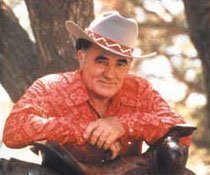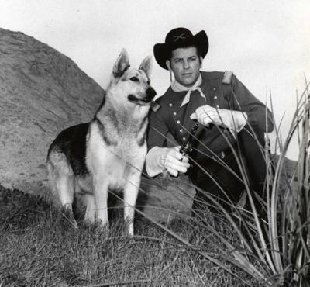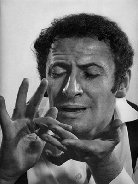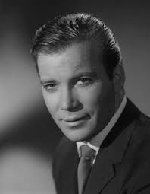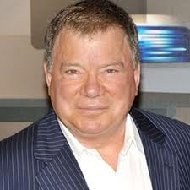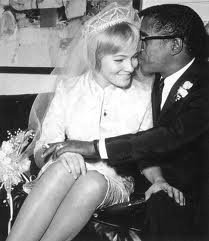Wyoming (/waɪˈoʊmɪŋ/ ⓘ wye-OH-ming) is a state in the Mountain West subregion of the Western United States. It borders Montana to the north and northwest, South Dakota and Nebraska to the east, Idaho to the west, Utah to the southwest, and Colorado to the south. With a population of 576,851 in 2020, Wyoming is the least populous state despite being the 10th largest by area, with the second-lowest population density after Alaska. The state capital and most populous city is Cheyenne, which had an estimated population of 63,957 in 2018.
Wyoming's western half consists mostly of the ranges and range lands of the Rocky Mountains; its eastern half consists of high-elevation prairie, and is referred to as the High Plains. Wyoming's climate is semi-arid in some parts and continental in others, making it drier and windier overall than other states, with greater temperature extremes. The federal government owns just under half of Wyoming's land, generally protecting it for public uses. The state ranks sixth in the amount of land—-and fifth in the proportion of its land—-that is owned by the federal government. Its federal lands include two national parks (Grand Teton and Yellowstone)
, two national recreation areas, two national monuments, and several national forests, as well as historic sites, fish hatcheries, and wildlife refuges.
Indigenous peoples inhabited the region for thousands of years. Historic and currently federally recognized tribes include the Arapaho, Crow, Lakota, and Shoshone. Part of the land that is now Wyoming came under American sovereignty via the Louisiana Purchase, part via the Oregon Treaty, and, lastly, via the Mexican Cession. With the opening of the Oregon Trail, the Mormon Trail, and the California Trail, vast numbers of pioneers traveled through parts of the state that had once been traversed mainly by fur trappers, and this spurred the establishment of forts, such as Fort Laramie, that today serve as population centers. The Transcontinental Railroad supplanted the wagon trails in 1867 with a route through southern Wyoming, bringing new settlers and the establishment of founding towns, including the state capital of Cheyenne. On March 27, 1890, Wyoming became the union's 44th state.
Farming and ranching, and the attendant range wars, feature prominently in the state's history. Today, Wyoming's economy is largely based on tourism and the extraction of minerals such as coal, natural gas, oil, and trona. Its agricultural commodities include barley, hay, livestock, sugar beets, wheat, and wool.
Wyoming was the first state to allow women the right to vote (not counting New Jersey, which had allowed it until 1807), and the right to assume elected office, as well as the first state to elect a female governor. In honor of this part of its history, its most common nickname is "The Equality State" and its official state motto is "Equal Rights". It is among the least religious states in the country, and is known for having a political culture that leans towards libertarian conservatism. The Republican presidential nominee has carried the state in every election since 1968.
Several Native American groups originally inhabited the region today known as Wyoming. The Crow, Arapaho, Lakota, and Shoshone were but a few of the original inhabitants European explorers encountered when they first visited the region. What is now southwestern Wyoming was claimed by the Spanish Empire, which extended through the Southwest and Mexico. With Mexican independence in 1821, it was considered part of Alta California. U.S. expansion brought settlers who fought for control. Mexico ceded these territories after its defeat in 1848 in the Mexican–American War.
Religion
Surveys have consistently ranked Wyoming among the most irreligious states. According to the 2020 American Values Atlas survey, Wyoming was the least religious state in the country.
In 2020, the Public Religion Research Institute determined that about 55% of Wyoming's adult population was Christian, primarily evangelical and mainline Protestant, Roman Catholic, and Mormon. The Public Religion Research Institute survey documented a decrease in religiosity from a 2014 separate Pew Research Center study; according to the Public Religion Research Institute, the irreligious made up 40% of the state population by 2020. According to a 2013 Gallup poll, Wyomingites' religious affiliations were 49% Protestant, 23% nonreligious or other, 18% Catholic, 9% Latter-day Saint (Mormons), and less than 1% Jewish.
If you want to read a whole lot more, go here: https://en.wikipedia.org/wiki/Wyoming
- SERVES
- 8
- CHILL TIME
- 2 Hr
- COOK TIME
- 40 Min
We're seriously excited about this neat way to "pump up" your potato salad recipe. Add some celery, peppers, dill, and the secret ingredient: tuna! Mix it all together and our "Pumped Up" Potato Salad is a totally new take on old-fashioned potato salad.
- 6 large white potatoes
- 2 (6 ounce each) cans tuna in water, drained and flaked
- 1 cup chopped celery (2 stalks)
- 1/2 cup chopped red bell pepper
- 1/3 cup chopped scallions (1 to 2 scallions)
- 2 cups mayonnaise
- 1 tablespoon white vinegar
- 1 teaspoon dried dill
- 1/2 teaspoon salt
- 1/2 teaspoon black pepper
- Place potatoes in a large pot and add just enough water to completely cover them. Bring to a boil and cook 35 to 40 minutes or until potatoes are fork-tender; drain and cool.
- Peel potatoes and cut into 1-inch chunks; place chunks in a large bowl and add remaining ingredients. Mix until potatoes are completely coated.
- Cover and chill at least 2 hours before serving.
***If you want, you can even cook the potatoes a day before making the salad this will cut down on the time needed to chill the salad before serving.
1912 – Karl Malden, American actor (d. 2009)
1920 – James Brown, American actor (d. 1992)
1931 – William Shatner, Canadian actor
1933 – May Britt, Swedish actress
1976 – Reese Witherspoon, American actress
HOW TO OBSERVE
5 Great Ways to Goof Off With Your Kids
- Sock Races – When things have gotten mind-numbingly boring, this goofy game will bring about some giggles and definitely burn off some boredom. Empty out the sock drawers. Preferably mom and dad’s because the bigger the better. Make a pile on the floor. Each child starts with bare feet and the goal is to put as many socks on their feet before the sock pile is gone. They’ll look goofy doing it and goofy when they’re done, too. And, all the while they were playing, they were goofing off.
- Play Dress-Up – It doesn’t matter what age our kids are, playing dress-up allows them to act out. Bring out some old makeup, old clothes and use a hairbrush as a microphone. Crank up the music and let the lipsyncing begin. Share a few videos, laugh and make some memories, too.
- Charades – Play an old fashioned game of charades. Set a few parameters by selecting a set topic that will keep your children on course. For example, you may want to only act out one of these topics: Disney movies, international travel, or national days.
- Blanket Fort – This classic way to goof off can lead to naps, reading books or playing with other toys. But it’s also a surefire memory maker, too.
- Write a Song – Take a song the whole family likes and write a new verse to it.








